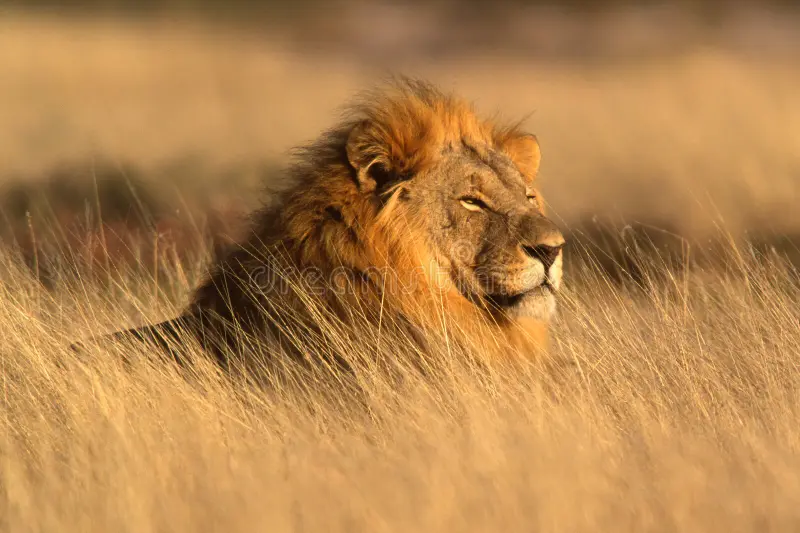When most people imagine a safari park, they think of wide-open spaces where exotic animals roam safely under careful care. Families often visit such places to marvel at wildlife and to support conservation efforts. But in Oregon, a safari park that promised exactly that has become the center of one of the state’s largest animal neglect cases in recent history.
The Oregon Safari Park owner indicted on over 300 animal neglect charges now faces scrutiny not only for alleged mistreatment of animals but also for being linked to drugs and firearms. What was once marketed as a family-friendly attraction has turned into a criminal investigation that has shocked animal rights groups, local residents, and wildlife experts nationwide.
This case raises important questions: How could such abuse go undetected for so long? What legal protections exist for animals in captivity? And how will the discovery of drugs and weapons further complicate the charges against the park owner?
Police Raid Exposes Disturbing Conditions
The case began when police executed a search warrant at the Oregon safari park after receiving multiple tips about suspicious activities. According to law enforcement officials, what they discovered was beyond anything they had anticipated.
Authorities reported finding over 300 counts of animal neglect, ranging from malnourished big cats to exotic birds kept in unsanitary cages. Investigators said many animals lacked proper food, clean water, and veterinary care. Some enclosures were so overcrowded that fights among animals had become routine, while others had become hazardous breeding grounds for disease.
But the raid revealed more than animal neglect. Police also seized a cache of illegal drugs and firearms from the property. This shocking discovery transformed what could have been simply an animal welfare investigation into a complex criminal case involving public safety and drug enforcement.
The Indictment: Over 300 Animal Neglect Charges
The district attorney’s office confirmed that the Oregon safari park owner has been indicted on more than 300 charges of animal neglect, making this one of the largest cases of its kind in Oregon’s history.
Legal experts note that each charge corresponds to an individual animal or a specific instance of neglect. If convicted, the owner could face decades in prison, hefty fines, and a permanent ban on keeping animals.
Animal welfare advocates praised prosecutors for treating the case with seriousness. “Each one of those charges represents an animal that suffered needlessly,” said a spokesperson for the Oregon Humane Society. “This indictment sends a powerful message that cruelty to animals—whether domestic pets or exotic wildlife—will not be tolerated.”
Drugs, Firearms, and the Dark Side of Animal Tourism
The discovery of illegal drugs and firearms on the property stunned investigators. Safari parks are usually associated with conservation, education, and family tourism—not with organized crime or drug trafficking.
While details of the substances found have not yet been publicly released, officials said the evidence points to “criminal enterprises beyond animal neglect.” The presence of firearms also raised alarms about potential threats to public safety. Families and school groups had been visiting the park for years, likely unaware of the dangerous activities happening behind the scenes.
The case highlights how unregulated wildlife facilities can become fronts for illegal operations. Without stringent inspections and oversight, such parks can easily conceal activities that put both animals and people at risk.
Animal Welfare in Captivity: A Larger Debate
This case reignites the debate over whether exotic animal parks truly serve conservation purposes or whether they are thinly veiled businesses exploiting wildlife for profit.
According to the World Animal Protection organization, thousands of captive wild animals in the United States suffer daily in roadside zoos, private collections, and safari-style attractions. Many of these facilities operate with little oversight, and some are even exempt from federal animal welfare standards.
Dr. Karen Mitchell, a wildlife biologist at Oregon State University, explained:
“Captive wildlife require specialized diets, veterinary care, and spacious enclosures. When operators cut corners, animals experience malnutrition, stress, and early death. Sadly, cases like this are more common than the public realizes.”
Community Reactions: Shock, Anger, and Sadness
Local residents expressed shock and outrage after the indictment was announced. Many had visited the safari park with their children, believing their entrance fees supported conservation. Instead, they learned the animals had been suffering behind the scenes.
“I took my kids there last summer, and now I feel sick to my stomach,” said one mother. “We thought we were supporting a good cause. I can’t believe this was happening right in our community.”
Animal rights groups have already organized vigils and protests outside the courthouse, demanding that the animals be relocated to reputable sanctuaries. Volunteers have stepped in to help authorities transport rescued animals to temporary shelters until permanent homes can be found.
The Legal Battle Ahead
The case against the Oregon safari park owner indicted on over 300 animal neglect charges is expected to be lengthy and complex. Prosecutors will likely present detailed veterinary reports, photographic evidence, and witness testimonies to prove neglect. The defense, on the other hand, may argue that the owner lacked resources rather than intent.
Legal analysts suggest that the drug and firearm charges could carry even harsher penalties than the neglect charges. If prosecutors can connect the safari park operations to drug distribution, the case may escalate into a federal investigation.
The Role of Oversight and Regulation
One of the most pressing questions this case raises is how such a situation went unnoticed for so long. Critics argue that oversight of private zoos and safari parks is alarmingly weak in many parts of the United States.
Unlike accredited zoos that must meet strict Association of Zoos and Aquariums (AZA) standards, many roadside attractions face only minimal inspections. In Oregon, some facilities operate under vague licensing requirements that leave room for abuse.
Animal rights activists are now calling for tighter regulations and routine inspections, arguing that exotic animals deserve the same protection as domestic pets under the law.
Lessons from Similar Cases Nationwide
This case is not isolated. In recent years, several high-profile prosecutions have revealed the dark underbelly of the captive wildlife industry:
In 2020, the Netflix documentary Tiger King exposed widespread animal abuse and illegal breeding practices in private zoos across the U.S.
In 2021, a Florida reptile dealer was charged with animal cruelty after authorities discovered hundreds of neglected snakes and lizards.
In 2022, Texas officials seized dozens of big cats and primates from a facility that had failed to provide basic care.
These cases illustrate a disturbing trend: wildlife exploitation often intersects with criminal activities like drug trafficking and illegal weapons possession.
What Happens to the Animals Now?
Perhaps the most pressing concern is the fate of the animals rescued from the Oregon safari park. Officials have confirmed that some have been relocated to sanctuaries, while others remain in temporary holding facilities.
Sanctuaries face challenges of their own, as caring for exotic animals is expensive and resource-intensive. A single tiger can consume up to 10 pounds of meat per day, costing thousands of dollars annually. Veterinary care for exotic species is also specialized and costly.
Still, organizations like Big Cat Rescue and the Wild Animal Sanctuary have expressed willingness to step in and provide long-term homes for the surviving animals.
FAQs
What charges is the Oregon safari park owner facing?
The owner has been indicted on over 300 counts of animal neglect, along with charges related to illegal drugs and firearms found on the property.
How many animals were affected in this case?
While exact numbers have not been confirmed, authorities suggest that hundreds of animals, ranging from big cats to exotic birds, were victims of neglect.
What will happen to the animals rescued from the park?
The animals are being relocated to sanctuaries and temporary shelters, where they will receive proper care until permanent homes can be arranged.
Could the park owner face prison time?
Yes. If convicted, the owner could face decades in prison, hefty fines, and a lifetime ban on keeping animals.
How does this case compare to similar incidents?
This is one of the largest animal neglect cases in Oregon, but similar cases nationwide have revealed a troubling pattern of abuse and criminal activity within unregulated wildlife facilities.
Conclusion:
The indictment of the Oregon safari park owner on over 300 animal neglect charges is not just a local scandal—it is a wake-up call for America’s approach to captive wildlife. This case demonstrates how inadequate oversight can allow cruelty to flourish and how facilities that appear family-friendly can conceal criminal activity.
As the legal process unfolds, the suffering of the animals should remain at the center of the story. Their plight underscores the urgent need for stricter regulations, transparent inspections, and a cultural shift away from exploiting exotic wildlife for entertainment.
This case may very well become a turning point in Oregon’s—and perhaps the nation’s—animal welfare laws. For now, the spotlight remains on the courtroom, the rescued animals, and the community demanding justice.














